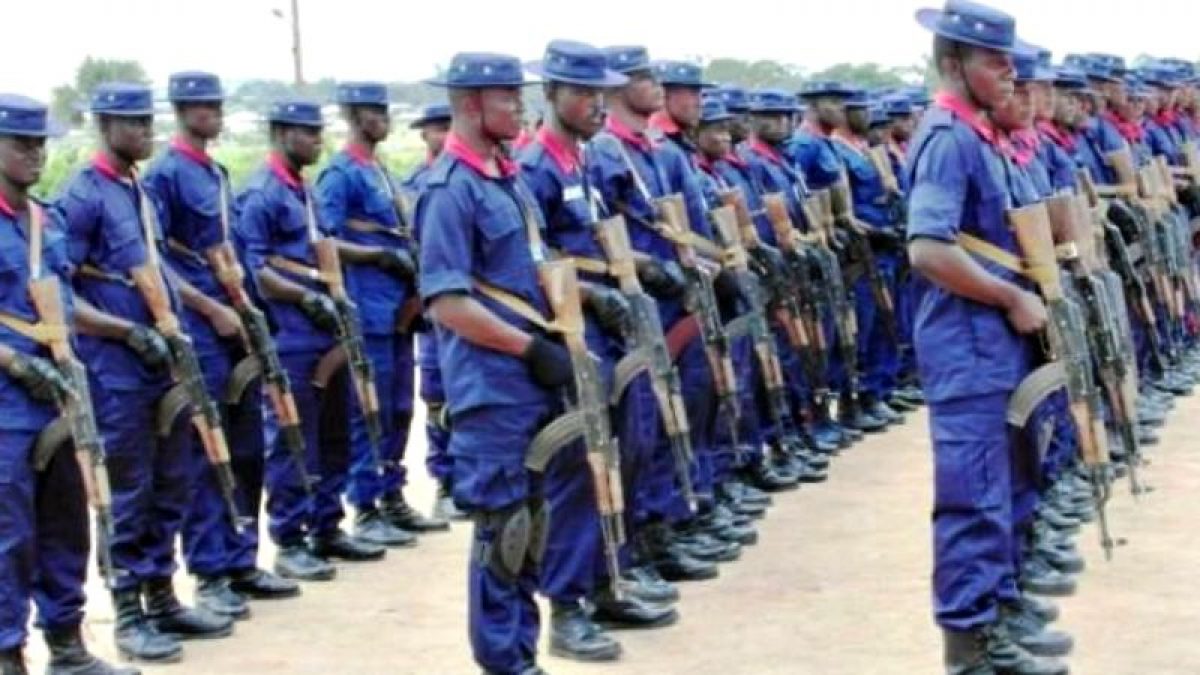This document will be critically assessed and studied, we might not accept everything but we will look into the document and most will be implemented if not all
A Ministerial Committee set up by the Nigeria Security and Civil Defence Corps (NSCDC) has developed a standard curriculum for all courses taken at NSCDC training schools across the country for better service delivery.
Prof. Suleiman Mohammed, Chairman of the committe and Vice- Chancellor of Nasarawa State University, alongside other committee members, presented the curriculum and survey report to the Minister of Interior, Rauf Aregbesola on Tuesday in Abuja.
Mohammed said that the curriculum had been established to further professionalise the Corps to meet present and future challenges, likewise to be of international best practices.
The committee recommended that in order to raise the standard of the schools to achieve higher professionalism, proper infrastructure, curriculum, staffing and funding should be adequately attended to soonest.
The chairman said that the committee identified the need for intensive training for all entry cadre in Katsina training school and recommended that the name of the college be changed from “NSCDC College of Peace and Disaster Management to Civil Defence Training and Doctrine College”.
He said there was also the need for specialised training on logistics, communication, intelligence and forensic studies.
“The committee realised that the senior officers’ cadre need to acquire strategic level trainings in preparation for higher command responsibilities.
“We recommend the training to be at Civil Defence Academy in Sauka which we suggest should be renamed as Centre for Civil Defence Studies,” he proposed.
According to Mohammed, the committee observers that there is no documented mandate for the establishment and running of the NSCDC training institutions.
“A common denominator in all the schools visited was the absence of C of O and survey plans on the land already acquired which will give the corps permanent and legal statutory ownership.
“During the visits, it was observed that most of the institutions lack adequate and competent professional instructors to manage the colleges.
“The Civil Defence Academy in Sauka, Abuja is uncomfortably sandwiched and hosted by NSCDC National Headquarters in a land space that is not enough for the corps to operate or function as headquarters.”
He said that the curriculum was established with honour and dedication and prayed the Minister and other policy managers to find the present documents worthy of implementation for the benefit of the nation.
The minister of Interior said that the establishment of the curricular was an effort to further promote and place the corps in a more standardised level as he appreciated the committee for developing the system.
“It is my vision that the corps should be able to provide the best education and training that is acceptable worldwide,” he said.
He said that the array of intellectuals in the committee showed the determination to acquire improved standards of officers and men in the corps.

“Education generally is the bedrock of human development which is the difference between animals and man, hence the use of knowledge for the improvement of man,” he said.
He expressed the hope that the committee had humanised the services of the corps in developing the curriculum, having in mind that the corps must deal with citizens in civil ways to make them comply to laws.
“Being civil does not remove firmness so I want to believe your study curriculum developed infused sufficient courses that will emphasise civility and humanity in the delivery of service by the corps.
“We cannot brutalise people and expect compliance as citizens deserve respect, dignity and honour; more so, the aged and generation of people we are dealing with and will deal with in the future are people who respect their dignity during enforcement of the rule of law.
“No human, no matter their economic class, will want to trade his dignity so we want to believe this will make our officers and men, gentlemen,” he said.
Aregbesola appreciated the committee for visiting the Corps’ colleges physically before coming up with key suggestions for improvement.
“This document will be critically assessed and studied, we might not accept everything but we will look into the document and most will be implemented if not all.
“The document will be passed on to the Civil Defence, Correctional, Fire and Immigration Board (CDCFIB) and should be ready in four weeks to further study after I go through them.
“The government will look into the observed losses in some of the schools and make amendments,” he said.
He also said that the curriculum would be useful in the promotion of officers as relevant courses ought to have been taken before promotion unlike the corps’ initial reliance on promotion examinations.
According to him, “as at today there is no training programme for private guards and in the pyramid of security structure, the level at which Private Guard Companies (PGC) operate is widespread so we cannot continue to allow them operate without proper training.
“PGCs training can reduce the internal security in the country as they can give credible grassroot reports.
“There is need to further work with PGD and stakeholders to develop training programs for PGC to be certified on their job as this will be a complementary service to security agencies.”
The News Agency of Nigeria (NAN) reports that the committee was made up of retired senior officers from the Police, Military, Correctional service, NSCDC, university lectures, lawyers.